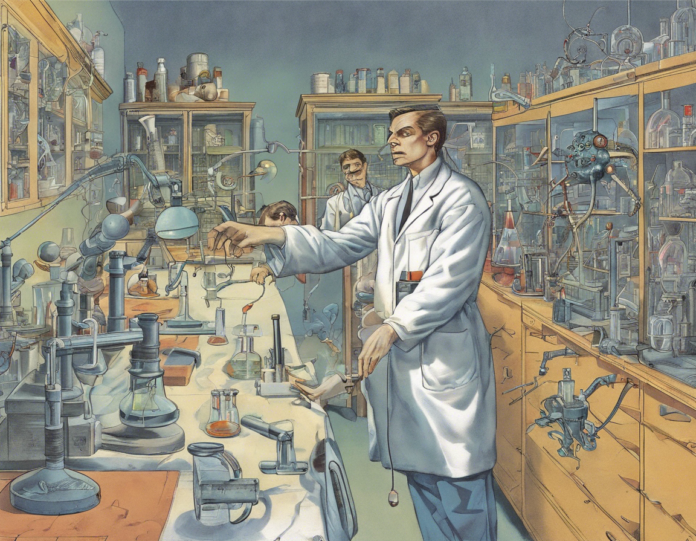Introduction
Science has undoubtedly transformed human civilization in countless ways. From advancements in technology to breakthroughs in medicine, science has revolutionized the way we live, work, and interact with the world around us. However, as with any powerful tool, the impact of science is a double-edged sword – capable of both tremendous benefits and unintended consequences. This article will delve into the debate of whether science is a curse or a boon to humanity, examining various perspectives and examples to provide a comprehensive understanding of this complex issue.
The Boons of Science
-
Advancements in Medicine
One of the most significant boons of science is the remarkable progress made in the field of medicine. From the discovery of antibiotics to the development of vaccines, science has enabled us to combat diseases that were once deadly and untreatable. Medical technologies such as MRI scanners and robotic surgery have revolutionized healthcare, improving diagnosis and treatment outcomes for patients around the world. -
Technological Innovations
Science has driven technological innovations that have transformed the way we live and work. From the invention of the light bulb to the creation of the internet, technology has made our lives more convenient, efficient, and connected. Smartphones, artificial intelligence, and renewable energy sources are just a few examples of how science has shaped the modern world. -
Space Exploration
Advancements in science have enabled humanity to explore the cosmos like never before. Space missions have expanded our knowledge of the universe, leading to discoveries about distant planets, black holes, and the origins of the universe itself. The exploration of space not only pushes the boundaries of human knowledge but also inspires future generations to pursue careers in science and technology. -
Environmental Conservation
Science plays a critical role in understanding and addressing environmental challenges such as climate change, deforestation, and pollution. By studying the impact of human activities on the planet, scientists can propose solutions to mitigate environmental damage and promote sustainability. Renewable energy technologies, environmental monitoring systems, and conservation efforts are all products of scientific research in support of a healthier planet.
The Curses of Science
-
Weaponization
One of the most significant curses of science is its potential for weaponization. Advances in technology have led to the development of increasingly powerful and destructive weapons, including nuclear bombs, chemical warfare agents, and autonomous drones. The misuse of scientific knowledge for military purposes has resulted in devastating conflicts and loss of life throughout history. -
Ethical Dilemmas
Science often raises ethical dilemmas that challenge our moral principles and values. Issues such as genetic engineering, cloning, and stem cell research prompt heated debates about the boundaries of scientific intervention in human life. Balancing the potential benefits of scientific advancements with their ethical implications is a complex and ongoing challenge for society. -
Health Risks
While science has made significant progress in improving healthcare, it has also introduced new health risks and challenges. The prevalence of chronic diseases, antibiotic-resistant superbugs, and environmental toxins are all consequences of industrial and technological advancements driven by scientific research. Balancing the benefits of modern medicine with its potential risks is essential for ensuring public health and well-being. -
Social Disparities
Advancements in science and technology have the potential to exacerbate social disparities by widening the gap between those who have access to new technologies and those who do not. This digital divide can lead to inequality in education, employment, and healthcare, creating barriers for marginalized communities to reap the benefits of scientific progress. Bridging this gap requires a concerted effort to ensure that scientific advancements are accessible and equitable for all members of society.
FAQs (Frequently Asked Questions)
-
Is science inherently good or bad?
Science itself is neither inherently good nor bad. It is a tool that can be used for various purposes, depending on how it is wielded by individuals and societies. The outcomes of scientific research and technological advancements can have both positive and negative impacts, depending on the context in which they are applied. -
What role does ethics play in scientific research?
Ethics play a crucial role in guiding scientific research and innovation. Researchers are expected to adhere to ethical principles such as informed consent, transparency, and accountability to ensure that their work upholds the rights and well-being of participants and society at large. -
How does science contribute to environmental sustainability?
Science contributes to environmental sustainability by providing the knowledge and tools necessary to understand the impact of human activities on the planet and develop strategies for conservation and resource management. Research in fields such as ecology, climatology, and renewable energy drives efforts to protect the environment and promote sustainability. -
What are some examples of scientific breakthroughs that have had a positive impact on society?
Examples of scientific breakthroughs that have had a positive impact on society include the discovery of penicillin, the development of vaccines for infectious diseases, the invention of the internet, and the exploration of space. These advancements have improved public health, communication, and our understanding of the universe. -
How can we address the negative consequences of scientific advancements?
Addressing the negative consequences of scientific advancements requires a multidisciplinary approach that involves policymakers, researchers, industry leaders, and the public. Implementing regulations, ethical guidelines, and sustainability measures can help mitigate the risks associated with scientific progress and ensure that its benefits are equitably distributed.
In conclusion, the debate over whether science is a curse or a boon is multifaceted and ongoing. While science has undeniable benefits that have transformed society for the better, it also poses risks and challenges that must be addressed responsibly. By critically examining the impacts of scientific advancements and fostering ethical and equitable practices, we can harness the power of science for the collective well-being of humanity and the planet.




